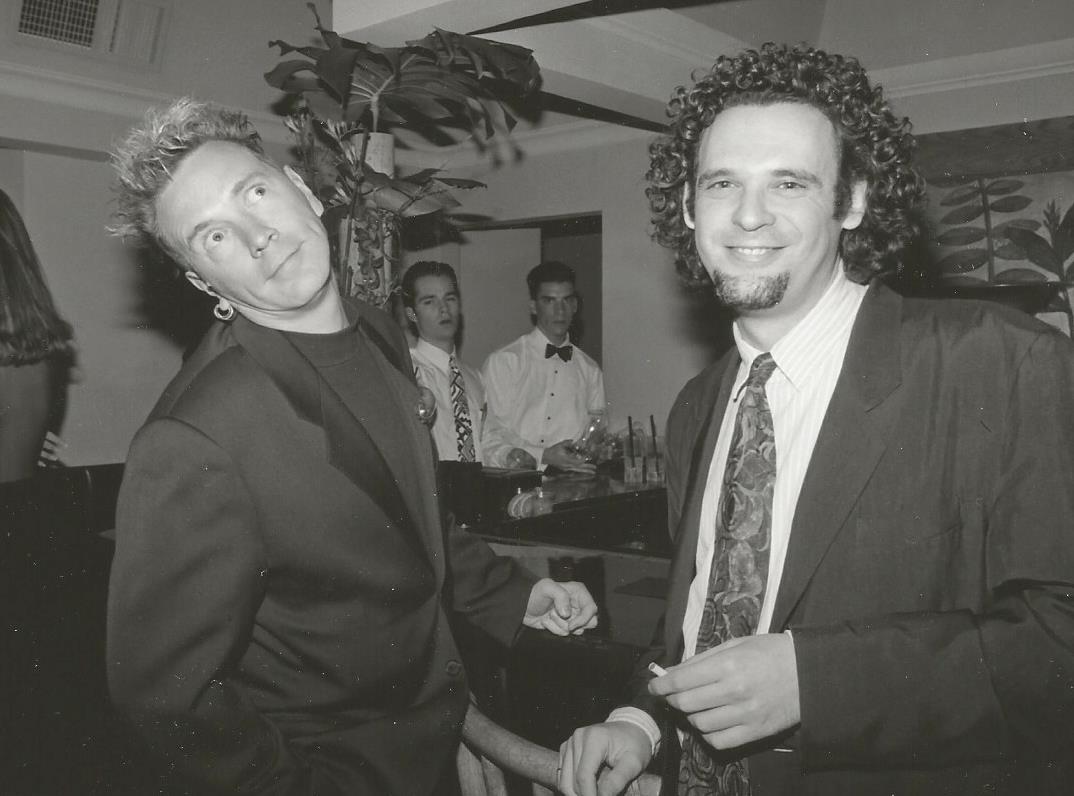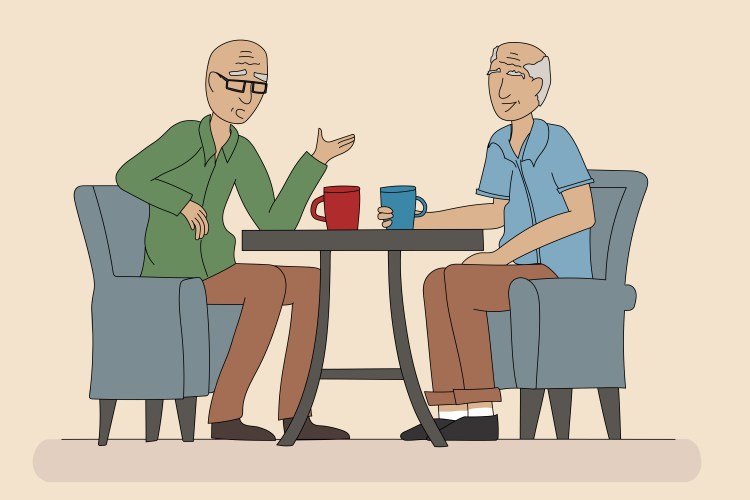I have not witnessed such unfettered, unrestrained glee since the last time I flicked on the History Channel and watched footage of the Liberation of Paris.
A hero of our youth, a legendary face of the anti-Styxian resistance whose scowl inspired our own trek to the Kingdom of Outsiders, the flame-crowned hunchback king who had led us from teen boredom to the Bowery and back — had transformed in his middle age.
John Lydon had become fat.
Last week, pictures emerged of a newly near-obese artist formerly known as Johnny Rotten, and social media reacted with savage ridicule and schadenfreude. The problem, y’see, was that the Antichrist Placeholder, one of our generations’ most famous rock’n’roll stars, had done the one thing no rock’n’roll star should ever do: The ex-frontman of the damn Sex Pistols had shown that he could be just like the rest of us.
And for some reason, this allowed formerly sensible humans all over the Interweb to do the one snarky, distasteful, intolerant, bullying thing that seems to still be allowed in this politically correct world — fat-shaming.

This is a fact: We are humans. Our magic is in our impermanence, our constant state of change. Imagine, just imagine, the lack of color, joy, motion, laughter, and tears, in a world that remained utterly stable! As humans, we age and gain weight; we have medical/adrenal conditions; or we reach the time of our lives when we no longer give a flying flip about staying thin and opt to eat the entire pint of Ben & Jerry’s.
Do not talk to me about fighting for the choice to do what you want with your body or the choice to determine the physical form you present to the world and then still think it’s okay to gawk and gossip and giggle over someone else’s weight gain.
How could you claim to be a choice-loving human, a human who supports the right to control your own social, sexual, and cultural destiny, and still make fun of someone’s appearance?
Some have said, with vehement and ridiculous logic, that it is okay to ridicule Lydon because he has often made public statements that are barbed, bitchy, even personally attacking of certain people. Somehow, this makes him open game.
It doesn’t. And those people are just using that as an excuse.
The real reason shamers are attacking Lydon is that he dared to become obese, and our heroes can’t do that. Because when they become fat or allow themselves to physically deteriorate, they become actual mirrors of who the rest of us are as we age.
See, as long as rock stars age unrealistically, we can look at them and see ourselves unrealistically.
We require that the idols of our teens and twenties, the ones who were the yardstick alongside which we measured our social, sexual, and cultural progress, must remain vaguely reminiscent of their poster boy/girl selves. By watching them age gently — as so very many of them, improbably, do — so this allows us to feel connected to our actual youth, not just the memories of our youth.
Think of your musical heroes: Even when their faces are lined, they still have that hair (Robert Plant), or that body (Iggy or Roger Daltrey), or that immediately identifiable baby face and unmistakable bob (Paul McCartney), or they still have the rooster spiked mane or platinum tresses of long-loved record sleeves (Chrissie Hynde, Debbie Harry). We can look at Bruce Dickinson, Siouxsie Sioux, Adam Ant, etcetera, note how goddamn good they look, and think, “Hey, they look pretty good, so I must look good, too! They look pretty much like I remember them looking when I was 22, so how old can I really be?”
As long as rock stars reflect back at us a reasonable facsimile of our memories, i.e. as long as we can see our younger selves in the familiar shape of their faces, we can deny our own aging. And in doing so, we can deny the truth of gravity, cosmology, and the universe.
But when we see someone who time and gravity has truly impacted, like it has impacted us, we are betrayed! We are no longer the 20-year-old bopping around the dorm room while the stereo plays. Instead, when we see an old rock star truly looking their age, we are suddenly a 56-year-old man or woman impacted by the grace of tragedy and experience.
Oh, and we realize our 20-year-old selves would not have given us the time of day. My god, that is the last thing we want to admit!
We want to deny impermanence. This is a feeling that has been profoundly encouraged in our culture over the last half century. To look at John Lydon and see someone who actually reflects the very same physical realities that we are subject to is to puncture one of the key myths that our generation hangs on to: This ludicrous idea that “40 is the new 30,” “50 is the new 40,” and so on.
You and I want to believe that 60 is the new 50 because when our parents were 60, they didn’t listen to the Sex Pistols (and we are somehow “younger” because we do). We want to believe that 60 is the new 50, because we are pretty sure our parents weren’t in as good shape at 60 as we are at 60. We want to believe that 60 is the new 50 because we simply cannot believe our parents had sex at age 60, so we must, somehow, be “younger” at 60 then they were.
But 50 is not the new 40. 50 is still freaking 50.
Do you know how I know this is true? I will prove it to you:
I guarantee you that this week, yesterday, maybe even today, some 40-year-old looked at you and thought, “Thank god I’m not 50 like that person is.” 50 will never be the new 40, at least not until the day they change the way we calculate age and you go directly from 39 to 50.
See, friends, God is Time. God is the reality of impermanence; that’s because impermanence, more than any single thing in our universe, creates life. An unhatched, unbroken seed produces neither plant nor embryo; an unblossomed vine produces neither flower nor fruit.

I love John Lydon.
I love what he meant to me when I was 14, when I first saw his face and heard his music; he seemed to say there was power, energy, hope, even love in hatred of the ordinary, and that there was love, there was the future, in questioning status quo and authority.
And I love what he meant to me when I was 18, when his band PiL began to tear down and rebuild everything my angular and short-form mind thought music could be.
And I loved him when I was 32, when he was a friend of great kindness, intelligence, humor, and sensitivity — one who would begin to weep when he would hear a sad story on the news, who would drop absolutely everything to do something for his step-grandkids. This is a man who once showed up at the front door of my Laurel Canyon home to hand me two CDs (Jacob Miller’s Who Say Jah No Dread and The Third Ear Band) and announce, “You really must listen to these.”
And I love what he is now, because he is me.
He is a human.
This article was featured in the InsideHook newsletter. Sign up now.























